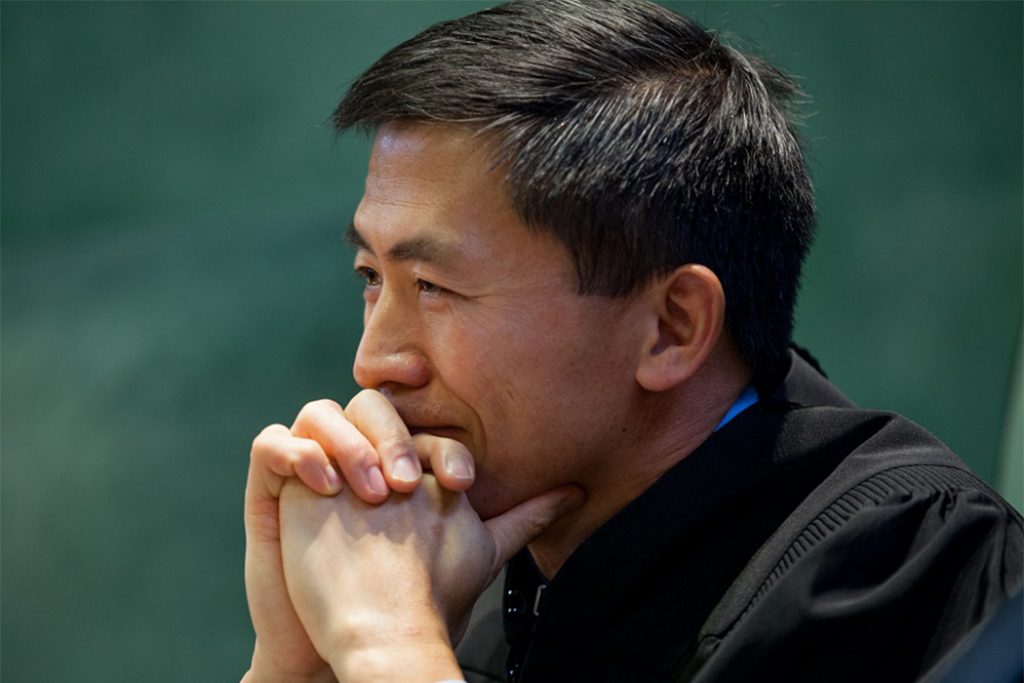An Asian American state supreme court justice said at a recent BC Law event that America is very attracted to a narrative that things are always getting better. “We have to be able to conclude every speech or every talk by saying that it’s still better than it was,” he declared. “But this is not necessarily true and it should be thought of as a call to action and not the inevitably of history.”
Speaking at an American Constitution Society-sponsored remote event March 29 attended by more than 100 people, Justice Goodwin Liu of the California Supreme Court addressed bias and violence against the Asian American Pacific Islander (AAPI) community both in society and in the legal profession.
Justice Liu’s said his personal story is a conventional American immigrant one: His parents came from Taiwan in the 1960’s and he has experienced racism since he was a small child. While his own racial victimization is unfortunately very common in America, his success as a federal judge is shockingly rare.
Justice Liu said that before he became a judge, he was not fully aware of how rare it is for him to hold this position. There are few AAPI lawyers in top legal positions in this country. Only eight out of 334 high court judges identify as AAPI, three of whom sit on his court.
Over the last generation, AAPI lawyers have entered the legal profession in record numbers but there has been little penetration into top positions, such as law school deans, judges, and other coveted spots. Justice Liu said that this is most stark in prosecutors’ offices; 95 percent of prosecutors are white. As of 2017, there were only four AAPI prosecutors out of 2,400 elected prosecutors in America, which included now-Vice President Kamala Harris.
AAPI lawyers also have the highest attrition rate at big large firms, greater than any other ethnicity. Justice Liu hypothesized that that might be because they are not getting good opportunities, are being pushed out, or don’t see a future for themselves in big firms because of their culture and homogeneity.
Outside of the legal profession, there are similar problems, Justice Liu said, as evidenced by the recent uptick in hate crimes and violence against the AAPI community, and society’s slowness to react to transgressions against these groups.
Contributing factors, according to Justice Liu, are a general lack of awareness of the history of racism towards the AAPI community in America and the perception that AAPI people are privileged. “In reality, Asian American is an incredibly broad term and this demographic includes the richest and the poorest in America,” he said. He further cited exoticization, hyper-sexualization, emasculation, othering, and the idea that AAPI people are perpetual foreigners as deep-seated reasons for the violence.
Justice Liu doesn’t think that the nation’s sense of dismay and anger over recent incidents will last. “In two to three weeks, the news cycle will be over,” he said. Even the murders in Atlanta in March of Asian Americans Soon Chung Park, Hyun Jung Grant, Suncha Kim, Yong Ae Yue, Delaina Ashley Yaun, Xiaojie Tan, and Daoyou Feng will fade from the spotlight.
“It’s up to us,” he said to the gathering of legal colleagues, “to keep this issue at the forefront.”
Photo: Judicial Branch of California


